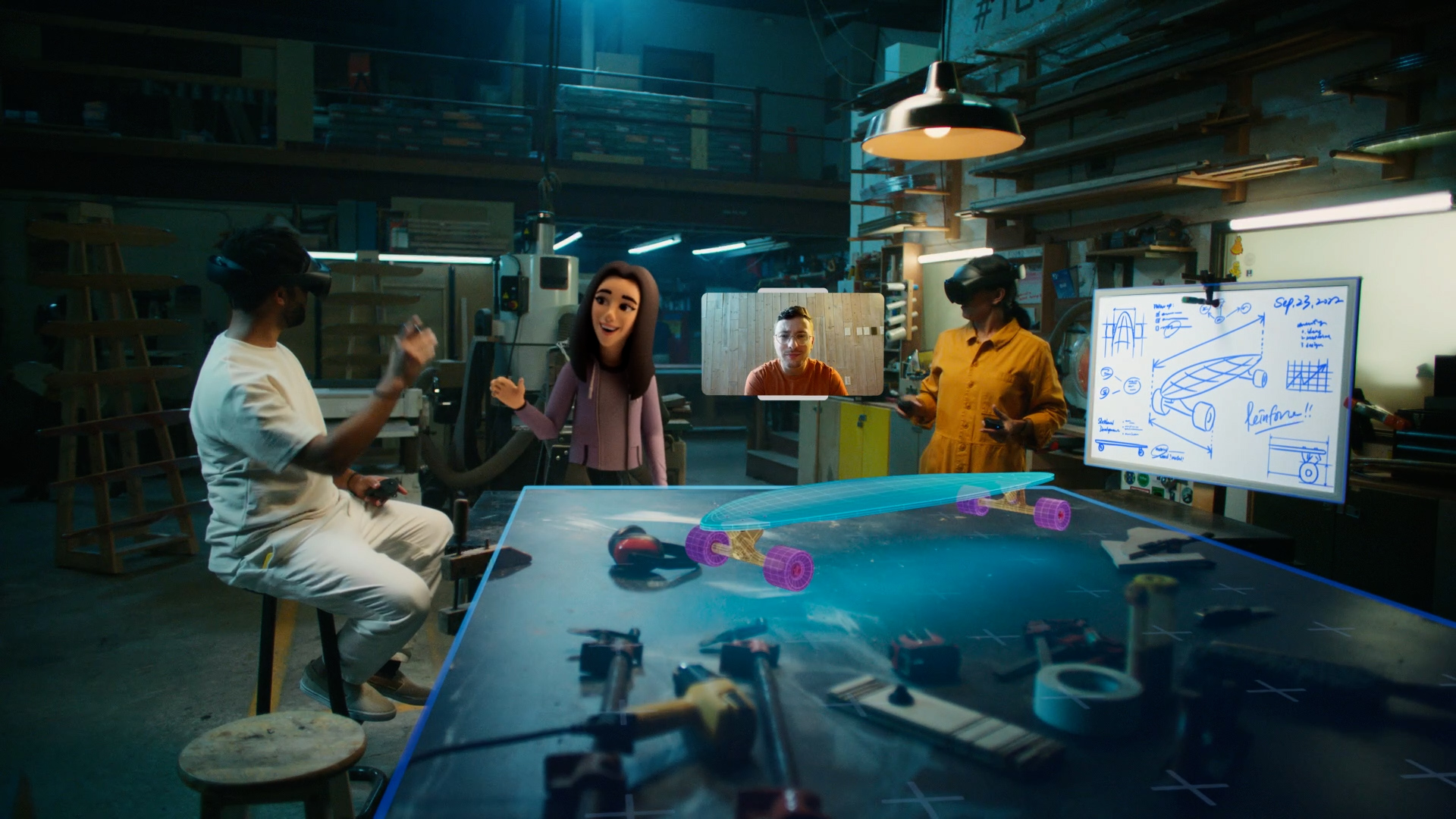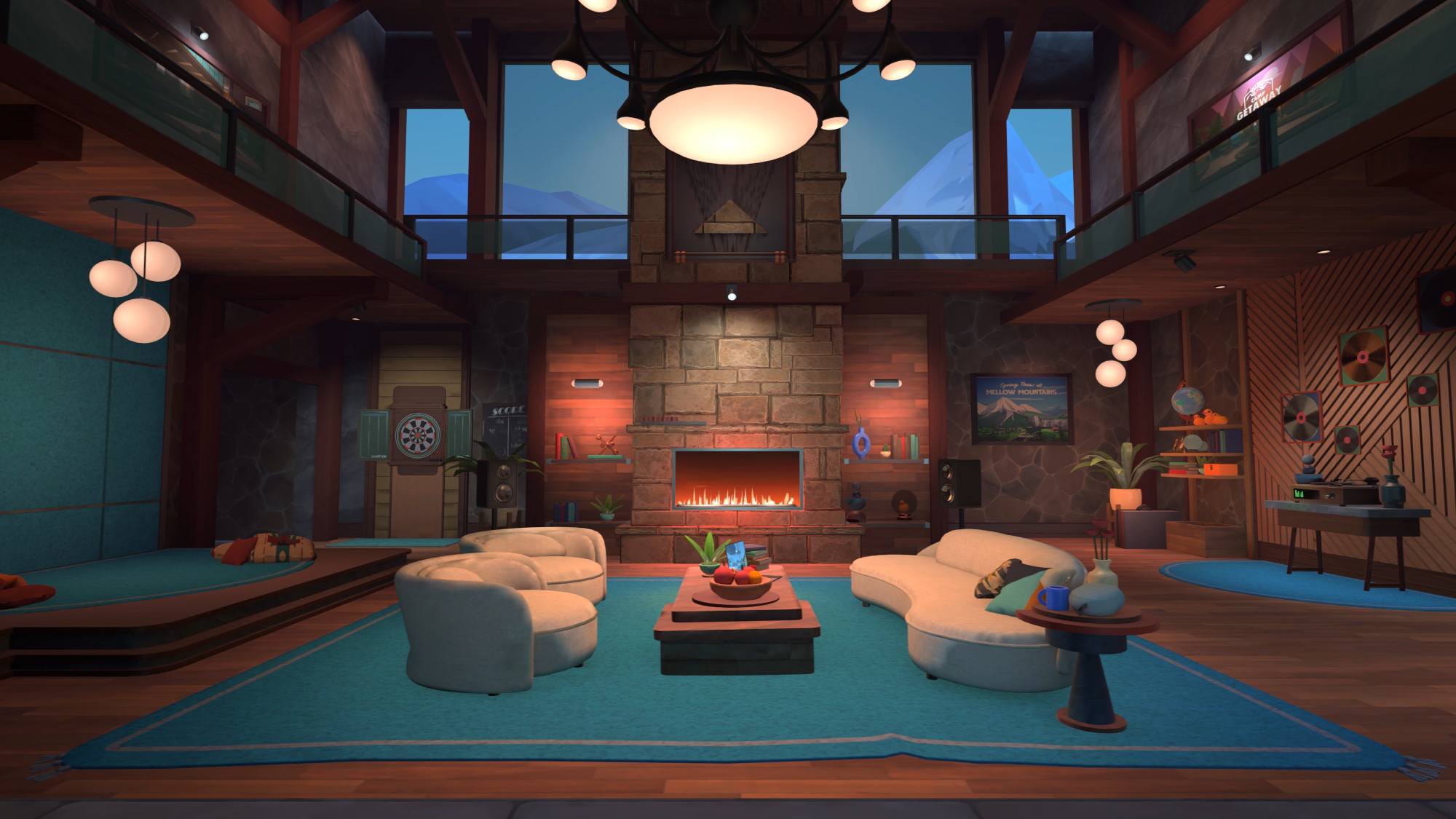Meta Unveils Improved Headsets, Better-Looking Virtual Worlds… And Legs
Meta has seemingly leveraged its future on the metaverse as boss Mark Zuckerberg continues to predict a world in which people’s daily lives are transformed by a headset and colorful 3d graphics.
On Tuesday, Meta presented the most detailed look yet at the future being pitched by its CEO, while touting the advantages of owning one of the company’s $1,500 headsets, the Meta Quest Pro, which will begin shipping on October 25.
Who is this technology for? Meta’s target audience, for the time being, seems to be businesses, artists looking to work in the metaverse space, and deep-pocketed vr fans. On Tuesday, Zuckerberg outlined a new partnership with Microsoft, which will see the software company develop and produce tools for the Meta Quest Pro, including apps for Windows 365 and Microsoft Teams.
“Meta Quest Pro was designed with productivity in mind and will be a major upgrade for those who use vr as a tool for work,” reads a Meta press release which accompanied Tuesday’s presentation.

What about the rest of us? Eventually, anyone with an office job might be able to use the technology as a work-from-home tool. According to Zuckerberg, he sees a future in which employees working from home will simply slide on their headset and clock in at a virtual office where they will interact with coworkers as if they were in the same physical space. And with their free time, Meta wants users to pass the hours in Horizon Worlds, the company’s social space in which friends can meet and hang out in virtual reality. Meta is also currently working with Youtube’s vr team to create a system where users can watch videos together and is engaged in a multi-year pact with NBCUniversal to bring comedy and horror content into the metaverse.
And when will that future become a reality? According to Zuckerberg himself, the software and hardware are still years away from being able to support a mature metaverse. Speaking with The Verge in a video interview timed to release with Tuesday’s presentation, Zuckerberg explained, “This is a long term journey… This is the first version of the vr device line that we’re shipping, and it’s not gonna be until later this decade, when we’re on v[ersion]4-v[ersion]5, that this stuff really starts to get fully mature.”
What are the main concerns surrounding Meta’s vr efforts so far? A main factor that seems to be preventing Meta from getting more people on board with Zuckerberg’s vision of a digital future seems to be aesthetic. Sure, there are plenty of people balking at the Quest Pro’s price tag, at the technological knowledge necessary to use the product, and there is a general cynicism towards vr that has come with so many failed attempts by other companies in the past. But reactions have scarcely been more anti-Meta than they are just about every time the company provides a look at the unappealing virtual world they’re pitching. If Meta wants consumers to embrace their product, they need more artists involved and they need to create something more appealing than they’ve offered so far.

What does this mean for the creative community? When Mark Zuckerberg shared a photo of his avatar in front of the Eiffel Tower and Barcelona’s Sagrada Familia two months ago, it was ridiculed across the internet. Skeptics have derided the avatars and their bland surroundings, and if Meta wants to shift public opinion on that front they’ll need artists who can work with Meta’s technology to create something visually appealing. It’s impossible to imagine a scenario where people will opt to spend hours of their days in a virtual world that looks like a child’s coloring book.
One need look no further than the emphasis Zuckerberg has put on avatar legs to understand the importance of public perception regarding aesthetics. “I know you’ve been waiting for this. Everyone has been waiting for this,” the CEO’s avatar boasted during Tuesday’s presentation. “But seriously, legs are hard, which is why other virtual reality systems don’t have them either.” If Meta is going to get people to buy into its new virtual reality, it will need to integrate the parts of actual reality that people enjoy seeing.
Legs are coming soon! Are you excited? 🎉 pic.twitter.com/SB6qSepKm4
— Meta Horizon (@MetaHorizon) October 11, 2022
